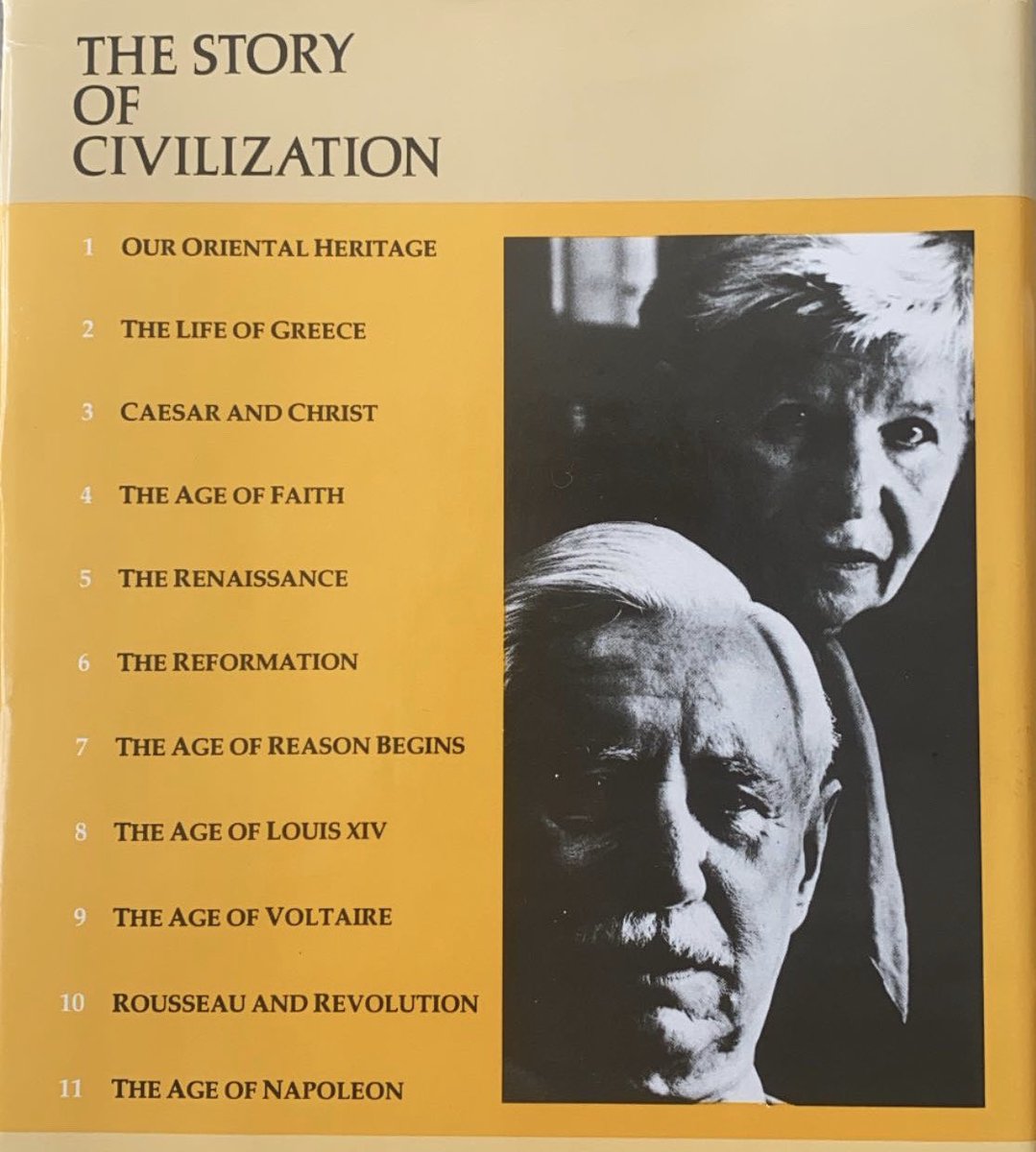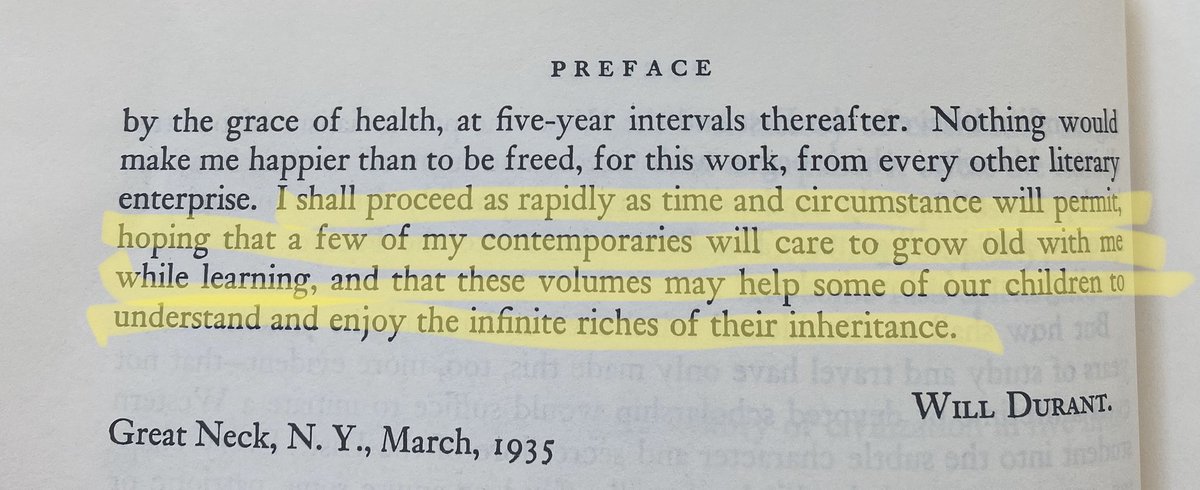Notes from Will and Ariel Durant’s Story of Civilization In 11 Volumes, part 1: Our Oriental Heritage.
“I want to know what we’re the steps by which men passed from barbarism to civilization.” - Voltaire
Civilization is social order promoting cultural creation.
Four elements constitute Civilization:
* economic provision
* political organization
* moral traditions
* the pursuit of knowledge and the arts.
* economic provision
* political organization
* moral traditions
* the pursuit of knowledge and the arts.
Civilization begins where chaos and insecurity end.
While geography may encourage or impede civilization, economic conditions are more important.
A continuity of food is the /sine qua non/ of culture. Without it intelligence will be lavished on the perils of the hunt and the tricks of trade, and nothing remains for the laces and frills and arts and comforts.
The first form of culture is agriculture. It is when man settles down to till the soil and lay up provisions for the uncertain future, that he finds time and reason to be civilized.
Within that little circle of security - a reliable supply of water and food - he builds his huts, his temples, and his schools.
Culture suggests agriculture, but civilization suggests city.
In one aspect civilization is the habit of civility, and civility is the refinement which townsmen who made the word, thought possible only in the /Covina’s/ or city.
For in the city are gathered, rightly or wrongly, the wealth and brains produced in the countryside.
In the city, invention and industry multiply comforts, luxuries, and leisur; in the city traders meet, and barter goods and ideas.
In the city, some men are set aside from the making of material things, and produce science and philosophy, literature and art.
Civilization begins in the peasant’s hut, but it becomes to flower only in towns.
There are no racial conditions to civilization. It may appear on any continent and in any color: At Pekin or Delhi, at Memphis or Babylon, at Ravenna or London, in Peru or Yucatán.
It is not the great race that makes the civilization, it is the great civilization that makes the people.
Circumstances geographical and economic create a culture, and the culture creates a type.
The Englishman does not make British civilization, it makes him.
If the Englishman carries his civilization with him wherever he goes, and dressed for dinner in Timbuktu, it is not that he is creating his civilization there anew, but that he acknowledges even there its mastery over his soul.
Prerequisites to civilization do not constitute or generate it. Other factors come into play as well.
There must be political order, and unity of language to serve as medium of mental exchange.
Through church, or family, or school, or otherwise there must be a unifying moral code, some rules of the game of life acknowledged even by those who violate them.
Perhaps there must be some unity of basic belief, some faith supernatural or utopian, that lifts morality from calculation to devotion, and gives life nobility and significance, despite our mortal brevity.
And finally there must be education - some technique however primitive, for the transmission of culture. Whether through imitation, initiation or instruction, whether through father or mother, teacher or priest...
The lore and heritage of the tribe - its language and knowledge, its morals and manners, it’s technology and arts - must be handed down to the young, as the very instrument through which they are turned from animals into men.
The disappearance of these conditions - sometimes even one of them - may destroy a civilization.
Civilization can end by geological cataclysm or an uncontrolled epidemic, like that which wiped out half the population of the Roman Empire under the Antonines, or the Black Death that helped to end the feudal age.
Civilization can further end by the exhaustion of the land, or the ruin of agriculture through the exploitation of the country by the town, resulting in a precarious dependence upon foreign food supplies.
Civilization can further end by the failure of natural resources, either of fuels or of raw materials; a change in trade routes; mental or moral decay; from the breakdown of traditional sources of social discipline; the weakening of the stock by a disorderly sexual life...
Further causes of civilizational collapse can be an epicurean, pessimist, or quietist philosophy; the decay of leadership through infertility of the able, and the relative smallness of the families the might bequeath most fully the cultural inheritance of the race.
Further causes of civilizational collapse can be a pathological concentration of wealth leading to class wars, disruptive revolutions, and financial exhaustion.
These are some of the ways a civilization may die.
For civilization is not something unborn or imperishable; it must be acquired anew by every generation, and any serious interruption in its financing or its transmission may bring it to an end.
Man differs from the beast only by education, which may be defined as the technique of transmitting civilization.
As family-rearing and then writing, bound the generations together, handing down the lore of the dying to the young, so...
... print and commerce and a thousand ways of communicating may bind civilizations together, and preserve for future cultures all that is of value for them in our own.
Let us, before we die, gather up our heritage, and offer it to our children.
This concludes Chapter 1. Follow me to see when I post the next chapter.

 Read on Twitter
Read on Twitter



